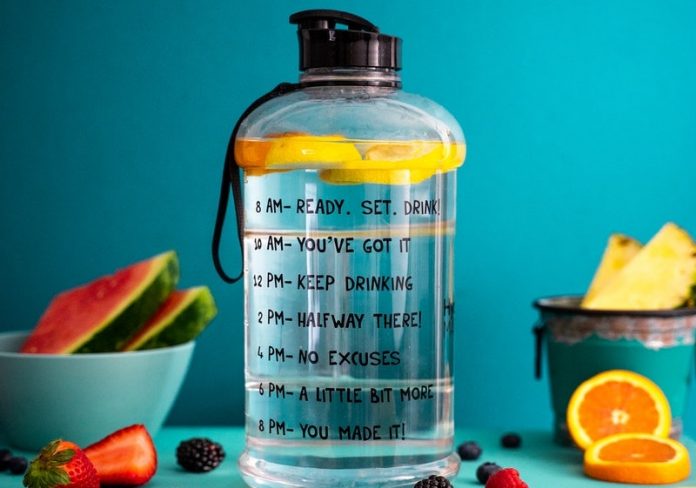
Have you ever experienced the strange taste of water after it has been in a reusable plastic bottle for a while?
It appears that there is a solid, yet worrying reason for this.
In a new study from the University of Copenhagen, researchers found several hundred different chemical substances in tap water stored in reusable plastic bottles.
Several of these substances are potentially harmful to human health.
In the study, the team examined which chemical substances are released into liquids by popular types of soft plastic reusable bottles. The results were quite a surprise.
They mimicked the ways in which many people typically use plastic drinks bottles. People often drink water that has been kept in bottles for several hours.
The researchers left ordinary tap water in both new and used drinking bottles for 24 hours, both before and after machine washing, as well as after the bottles had been in the dishwasher and rinsed thoroughly in tap water.
They detected more than 400 different substances from the bottle plastic and over 3,500 substances derived from dishwasher soap.
A large portion of these are unknown substances that the researchers have yet to identify. But even of the identified chemicals, the toxicity of at least 70 % remains unknown.
Photo-initiators are among the toxic substances in the water which worry the researchers.
These are known to have potentially harmful effects on health in organisms, such as being endocrine disruptors and carcinogens.
Furthermore, the researchers found a variety of plastic softeners, antioxidants and release agents used in the manufacture of the plastic, as well as Diethyltoluamide (DEET), commonly known as the active substance in mosquito spray.
They suggest that they have yet to conclude whether the water in the bottles is harmful to health, as they currently have only an estimate of the concentrations of the substances and toxicological assessments have yet to be completed.
The researchers suspect that bottle manufacturers only add a small proportion of the substances found intentionally.
The majority have inadvertently occurred either during the production process or during use, where substances may have been converted from other substances.
If you care about wellness, please read studies about two diets together tha may reduce heart damage, and natural food supplement that may help relieve anxiety.
For more information about health, please see recent studies about nutrient that may strongly lower high blood pressure, and results showing that eating this food linked to better waist size, blood pressure, blood sugar.
The study is published in the Journal of Hazardous Materials and was conducted by Jan H. Christensen et al.
Copyright © 2022 Knowridge Science Report. All rights reserved.




